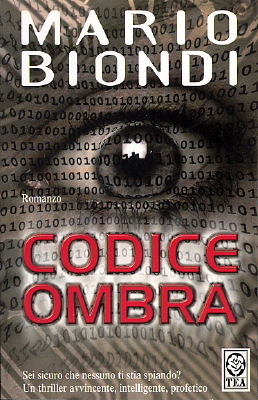Per una lettura documentata


- Sito creato il 15/4/1995 dallo scrittore Mario Biondi © | Aggiornato | @ Contatti 0


I romanzi di Mario Biondi ©
Codice Ombra - Code Shadow
(1999 - The beginning)

Benvenuti. Questo sito è totalmente gratuito e NON fa uso di cookie. Non viene raccolto NESSUN dato personale.